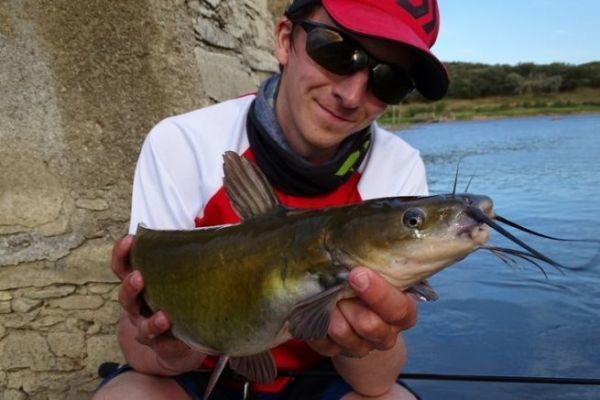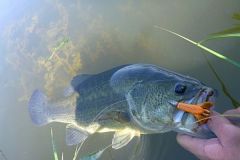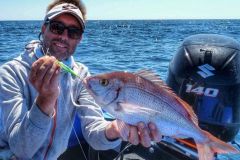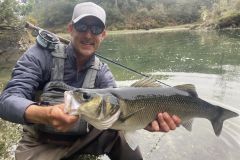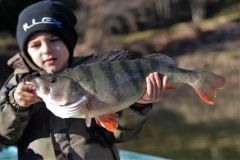A species introduced to Europe
The channel catfish (Ictalurus punctatus) is a native North American catfish, common in rivers, lakes and reservoirs in the USA, southern Canada and northern Mexico. It has been introduced to many other countries and is found in the wild in several European countries: Spain (particularly the Ebro basin), Northern Italy (Oglio rivers, Pavia province), Romania, Czech Republic, Slovakia and Cyprus.
In Portugal, its population is expanding rapidly, and it is becoming more and more common in certain lakes and slow-flowing rivers.
In France, its presence remains confidential, mostly confined to private lakes or certain slow-moving rivers.
The channel catfish is best recognized by its distinctive V-shaped tail and rounded anal fin, combined with its often mottled coloring and rather stocky body.
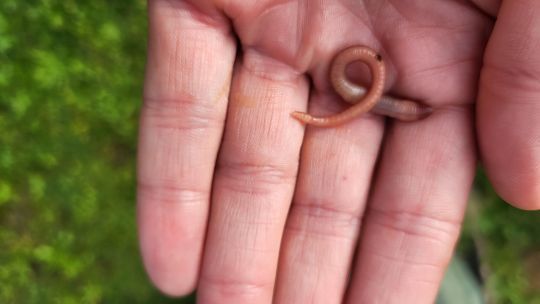
The most effective baits for channel catfish fishing
Earthworms are very attractive baits, easy to use and appreciated by most catfish.
Shrimps and oily fish such as sardines, mackerel or herring/smelt strips quickly release their scent into the water, attracting channel catfish.
Chicken liver or tripe can also be used, as their strong smell specifically attracts catfish, including channel catfish.
Crayfish, even dead ones, are present in their natural habitat, and are among the channel catfish's favorite foods.
Cheese and pieces of meat are used successfully by some fishermen.
A few practical tips
Scented baits are preferable, as brill have a highly developed sense of smell.
Large baits are advisable, given the width of its mouth.
It's best to fish close to the bottom, in calm or debris-rich areas where fish feed.
Pre-baiting with crushed bait can improve the attractiveness of the fishing spot.
Opt for a strong setting to ensure good penetration of the hook in a thick mouth.
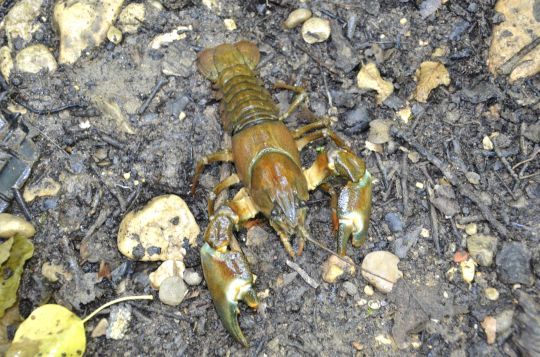
Other alternatives
Commercial baits specially formulated for catfish are also effective, especially in areas heavily frequented by this species.
In fine weather, lure fishing can work, especially with vibrating or strongly flavoured lures.

 /
/ 